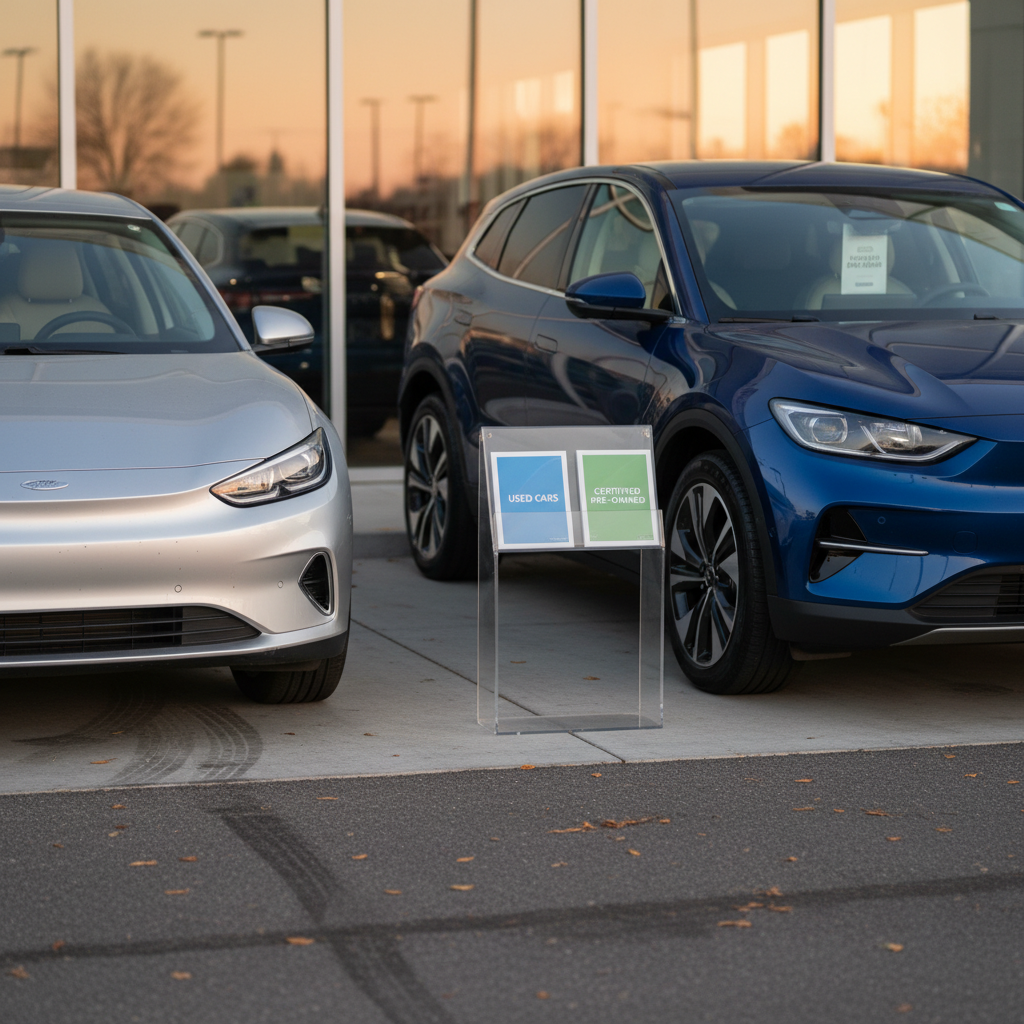If you own or are shopping for a Chevy Bolt EV or EUV, the phrase “Bolt battery replacement cost” can be a little terrifying. You’ve probably seen headlines about $15,000–$20,000 packs, recalls, and long waits for parts. Let’s strip away the drama and walk through what a replacement actually costs in 2025, how much the warranty really covers, and how to shop for a used Bolt without rolling the dice on a five‑figure repair.
The short answer
Chevy Bolt battery replacement cost in 2025: quick overview
Chevy Bolt battery replacement by the numbers
Owner reports and legal/repair sites that track invoice data converge on a similar picture: a Chevy Bolt battery replacement usually bills out between roughly $16,800 and $19,000 in the U.S., assuming the job isn’t covered by warranty or the recall. That’s driven mostly by the cost of the pack itself, with labor and associated parts making up a smaller (but still meaningful) slice.
Sticker shock is real
What battery does the Chevy Bolt use? Sizes, years, and chemistry
To understand Bolt battery replacement cost, it helps to know what’s actually under the floor. Different model years use slightly different pack sizes, and that can influence pricing and warranty timelines.
Chevy Bolt EV & EUV battery sizes by model year
Approximate usable pack sizes for U.S. Bolt models currently on the road.
| Model years | Model | Nominal pack size | Notes |
|---|---|---|---|
| 2017–2019 | Bolt EV | 60 kWh | Original packs; nearly all eligible for recall battery replacement. |
| 2020–2021 | Bolt EV | 66 kWh | Updated pack, slightly more range and efficiency. |
| 2022–2023 | Bolt EV | ~65 kWh | Efficiency improvements with similar EPA range. |
| 2022–2023 | Bolt EUV | 65 kWh | Slightly heavier body; similar energy capacity. |
Most replacement packs installed under the recall are the newer 66 kWh design, even in earlier cars.
All first‑generation Bolts (2017–2023 EV and EUV) use a nickel‑rich lithium‑ion pack supplied by LG with liquid cooling. The pack is bolted into the structure of the car and is made up of 288 cells in 96 groups. It’s a sophisticated, high‑value component, roughly a quarter of the car’s value when new, which is why replacement costs land where they do.
What about the new, revived Bolt?
Why is Bolt battery replacement so expensive?
Four big drivers of Bolt battery replacement cost
It’s not just the size of the pack; it’s everything around it.
1. Complex, high‑voltage hardware
2. OEM-only replacement path
3. Pack price vs. kWh math
4. Specialized labor & liability
Think of it like an engine swap
Warranty, recall batteries, and when replacement is free
Here’s the part that gets lost in the horror stories: the vast majority of Bolt battery replacements to date have been covered by GM, not the owner. Two big protections matter, Chevy’s standard battery warranty and the Bolt recall program.
Bolt battery warranty: what you’re actually covered for
8-year/100,000-mile standard warranty
All first‑gen Bolt EVs and EUVs came with an <strong>8‑year / 100,000‑mile battery warranty</strong> (from in‑service date). It covers defects and abnormal degradation below Chevrolet’s capacity threshold.
Recall replacements often reset the clock
If your battery was replaced under the well‑publicized recall, the replacement pack typically carries a <strong>fresh 8‑year/100,000‑mile warranty</strong> from the date it was installed. That means many 2017–2019 cars now effectively have the battery warranty of a much newer vehicle.
Not all issues are covered
Damage from collisions, improper modifications, or neglect can be excluded. If a pack is physically impacted or water‑damaged, you may be outside warranty even if you’re under the time/mileage limits.
Software “fix” vs. hardware replacement
For 2020–2022 cars, GM increasingly uses <strong>diagnostic software and charging limits</strong> to decide whether a pack actually needs replacement. Some owners who expected a new battery end up with a software remedy instead.
Capacity loss standards
Like most EVs, the Bolt’s warranty covers excessive loss of capacity, not every mile of natural degradation. A pack that’s lost a small percentage of range over years is usually considered normal wear.
Check by VIN, not guesswork
Before you panic about battery replacement cost on your car, or a used one you’re considering, <strong>run the VIN through GM’s recall/warranty tools</strong> or ask a Chevy dealer to pull the warranty history. The details are specific to each vehicle.

Upside of the recall
Real-world out-of-warranty scenarios (and what people actually pay)
So what happens when a Bolt’s pack fails after the warranty expires, or for a reason Chevy won’t cover? There isn’t a single answer, but owner stories and repair data paint a few common patterns.
Typical out-of-warranty situations
Where five‑figure battery costs actually show up.
Crash or impact damage
High-mileage Bolt with failure
Edge cases & denied claims
When replacing the pack makes no financial sense
Should you replace the battery, repair the car, or sell it?
When a replacement can make sense
- Insurance is paying. If a collision claim is footing most of the bill, a new pack can restore the car’s value.
- You love the car and plan to keep it long-term. If your Bolt fits your life perfectly and you can secure fair financing, a fresh pack may effectively give you another decade of use.
- You negotiated the price down. In rare cases, a shop or seller may offer a heavily discounted pack or refurbished option that changes the math.
When it’s smarter to walk away
- Repair cost exceeds car value. If the quote is more than the car’s private‑party value, you’re underwater the moment you sign.
- You’re uncertain about the rest of the car. A new pack doesn’t fix worn suspension, electronics, or accident history.
- You have good alternatives. In a healthy used EV market, selling or trading into another Bolt, or a different EV with strong battery health, often makes more sense.
Run the numbers, not your emotions
Buying a used Bolt: how to avoid a surprise battery bill
If you’re shopping for a used Bolt, the goal isn’t to avoid every car that’s ever had battery work. It’s to avoid taking on unknown risk. A Bolt with a recent recall battery and a fresh 8‑year warranty can be a fantastic buy, if you have the paperwork to prove it.
Used Bolt checklist: battery questions to ask before you buy
1. Has the recall battery been installed?
Ask the seller directly and request proof. Look for service records showing a <strong>complete pack replacement under the recall</strong>, not just a software update. If you’re not sure how to read them, a specialist can help.
2. What’s the current battery warranty expiration?
Ask for the in‑service date and any restart date if a recall battery was installed. You’re aiming for <strong>as much remaining warranty as possible</strong>, especially if you drive a lot of miles.
3. Are there any battery or high-voltage warnings?
A Bolt with active “propulsion reduced,” battery fault codes, or repeated no‑start behavior is a red flag. Those issues can be covered under warranty, but if they’re not, you’re staring right at that replacement‑cost risk.
4. Do you have a recent battery health report?
A capacity or state‑of‑health estimate based on real‑world driving data is more useful than guesses about range. <strong>Recurrent‑style reports and Recharged Score diagnostics</strong> are examples of tools that quantify pack health.
5. What’s the car’s charging history?
Daily 100% fast charges in hot climates are harder on any pack. Occasional DC fast charging is fine, but a Bolt that’s lived on DCFC and quick turnarounds is worth a closer look at battery health.
6. Who’s standing behind the sale?
A private seller may offer a lower price, but a specialist EV retailer, like <a href="/">Recharged</a>, can back the car with inspections, transparent battery health data, and support if something goes sideways.
How Recharged reduces your battery-risk when you buy used
Bolt battery replacement cost is scary in the abstract. In practice, it’s mostly a question of buying the right car in the first place and understanding the coverage that comes with it. That’s exactly where Recharged focuses.
Why a used Bolt from Recharged is different
Less guesswork, more transparency around the battery.
Recharged Score battery diagnostics
Verified recall & warranty status
Financing & trade-in options
Nationwide delivery & digital paperwork
EV-specialist support
Experience Center in Richmond, VA

Bolt battery replacement cost: frequently asked questions
Frequently asked questions about Bolt battery replacement
Key takeaways: making a smart decision about your Bolt
- Replacing a Chevy Bolt battery out of pocket typically costs well into the mid‑five figures, mainly due to the price of the pack itself.
- Most Bolt owners who get new batteries do so under warranty or recall coverage, paying little or nothing out of pocket.
- A Bolt with a recent recall pack and fresh 8‑year warranty can be one of the best used‑EV values on the market.
- If your Bolt is out of warranty and needs a pack, it’s crucial to compare repair cost vs. vehicle value before agreeing to the work.
- When you shop used through Recharged, you get verified battery health data, clear recall and warranty status, financing options, and EV‑savvy support so you’re never guessing about the most expensive part of the car.
The bottom line: Bolt battery replacement cost is something to respect, not fear. With the right information and the right partner, you can either protect the Bolt you already own, or choose a used Bolt whose battery has many healthy years ahead of it. And if you’d rather not gamble on a five‑figure component, you don’t have to. You can use battery data, warranty details, and expert help to make the numbers work in your favor.



